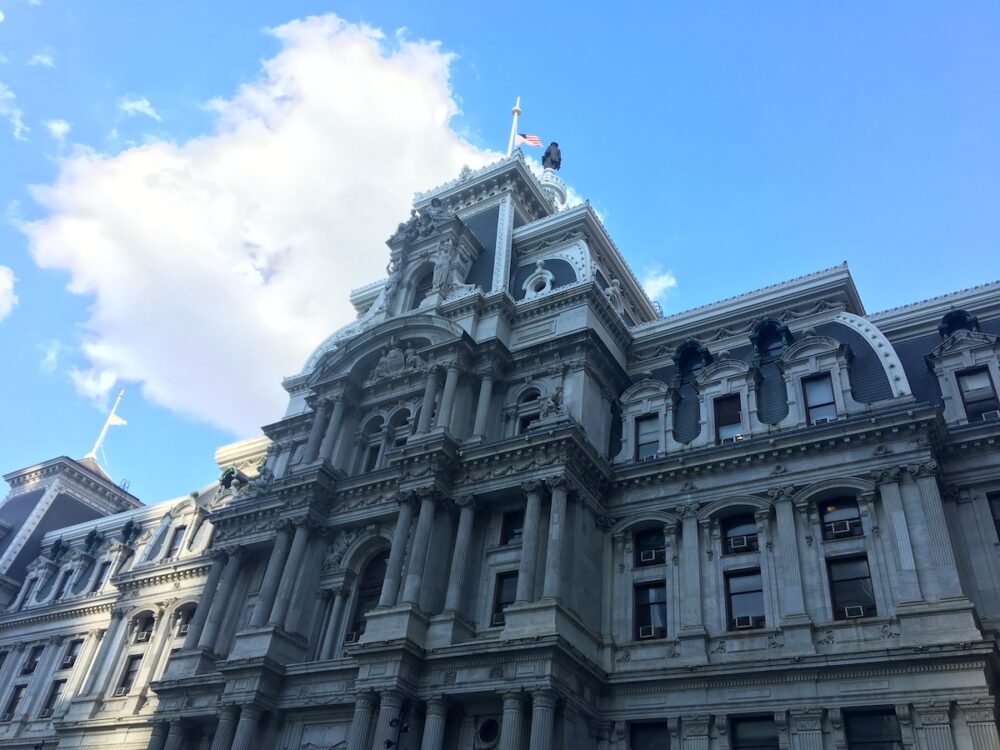City budgets are getting wrecked by the pandemic. One of the areas that’s come in focus for Philly is the wage tax.
Remote work reigns for those who can swing it. In Center City, office occupancy has not been higher than between 5 and 10% throughout the pandemic. That’s a problem for this tax, which relies partly on suburban workers who are now no longer commuting into the city — and makes up a big part of City of Philadelphia revenue.
If you’re stuck wondering what that even means, we gotcha. Here’s a quick explainer on the tax, why it matters and how it’s changed in recent months.
What is the wage tax?
The wage tax is a percentage taken from workers’ taxable income to pay for city services.
For Philadelphia, those who live within city limits pay a slightly higher rate — 3.8712% — than non-residents who work in the city, as residents presumably consume more city services. Non-residents are taxed at 3.5019%. Residents must also pay the wage tax, whether they work in the city or not.
Why does Philly have a wage tax?
Philadelphia was the first city to enact such a tax, in 1939.
“It seemed like a good idea at the time,” as Committee of Seventy’s David Thornburgh told Technical.ly in 2014, ahead of the tax’s 75th anniversary. “This is how you pay for public services in a place and at a time when people are dependent on employment that has fixed, relatively immobile assets, like railroads.”
In the 21st century, however, workers can travel more easily between counties for employment if they choose, and employers intent on avoiding paying such a tax can more easily move outside city limits than industries of old.
Other cities and states have versions of this tax, too.
How did the pandemic affect the wage tax?
The non-resident wage tax was boosted on July 1 for fiscal year 2021 to account for anticipated revenue losses from COVID-prompted changes, such as widespread cuts to workers’ salaries and hours, as well as more suburban-dwelling city workers staying home.
The effect on the City of Philadelphia’s finances could be dramatic, per reporting from The Philadelphia Inquirer:
The wage tax accounts for 45% of Philadelphia’s annual revenue, and is expected to decline by about $78 million this fiscal year — despite an increase in the nonresident rate. While it’s difficult to determine how much of that loss is due to furloughs and layoffs as opposed to remote work, the city typically collects 40% of its roughly $1.5 billion in annual wage taxes from nonresidents.
If I’m working remotely from my home in the suburbs during the pandemic, do I need to keep paying the wage tax?
Not if you’re required to work from home due to pandemic restrictions. But if you have the option to work from home or in your city-based office, you will need to pay the wage tax.
How can I apply for refunds of the wage tax if I’ve been working remotely, but still see the tax withheld from my paycheck?
Info on other refunds for salaried or commissioned employees, as well as qualifying income-based wage tax refunds, which are tax reductions available to some low-income residents, can be found on the City’s website. For this year only, newly released forms are available for non-city-resident employees to apply for their own wage tax refunds, if their employer has not filed for a refund on your behalf.
Catch more of an explainer from Rebecca Lopez Kriss, deputy commissioner of the Department of Revenue, and Malik Bellamy, an accountant with the City:

Technical.ly is one of 20+ news organizations producing Broke in Philly, a collaborative reporting project on solutions to poverty and the city’s push toward economic justice.
Before you go...
Please consider supporting Technical.ly to keep our independent journalism strong. Unlike most business-focused media outlets, we don’t have a paywall. Instead, we count on your personal and organizational support.
Join our growing Slack community
Join 5,000 tech professionals and entrepreneurs in our community Slack today!

The person charged in the UnitedHealthcare CEO shooting had a ton of tech connections

From rejection to innovation: How I built a tool to beat AI hiring algorithms at their own game

How a laid-off AI enthusiast pivoted to become a founder — while holding down a day job


